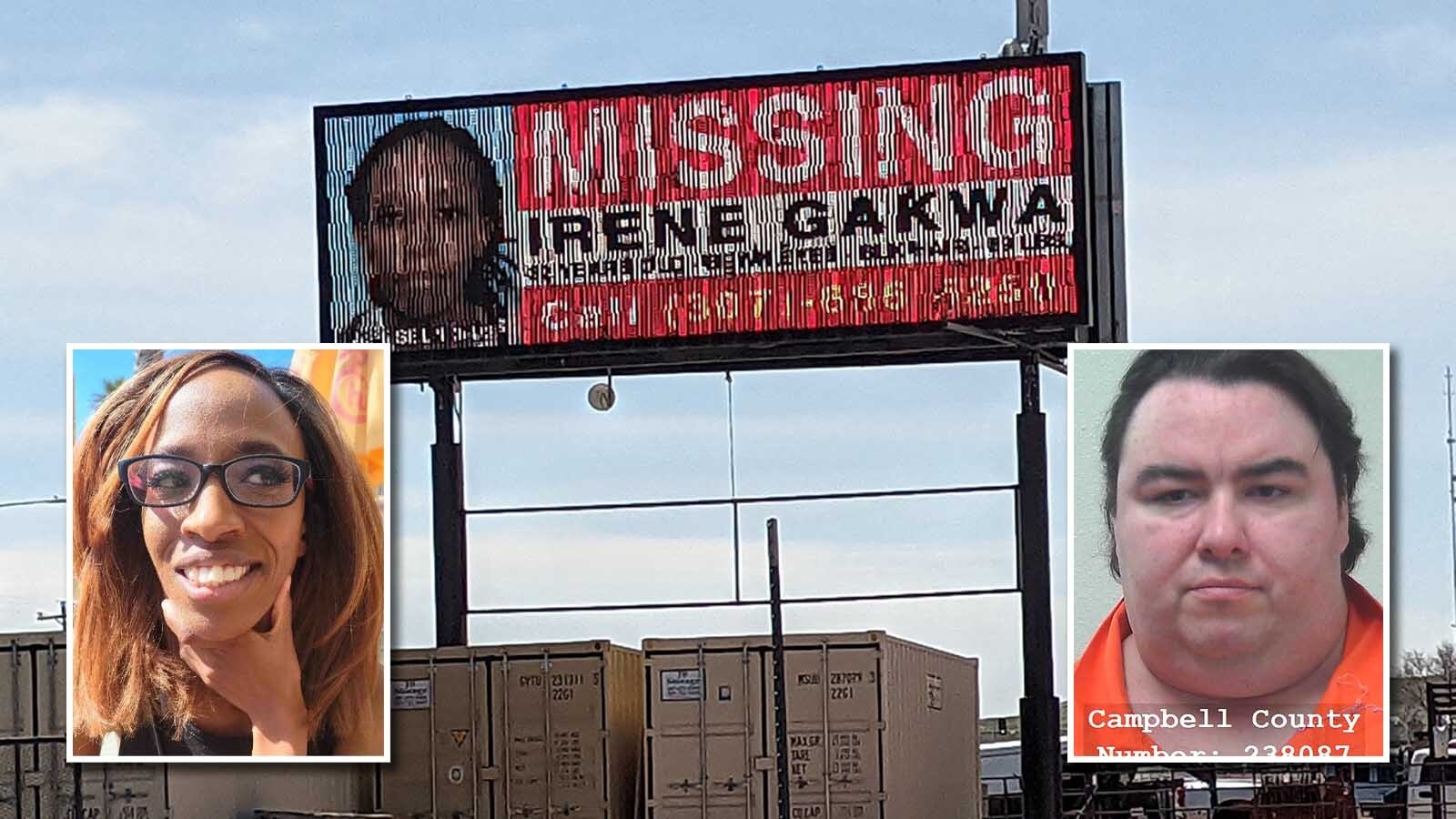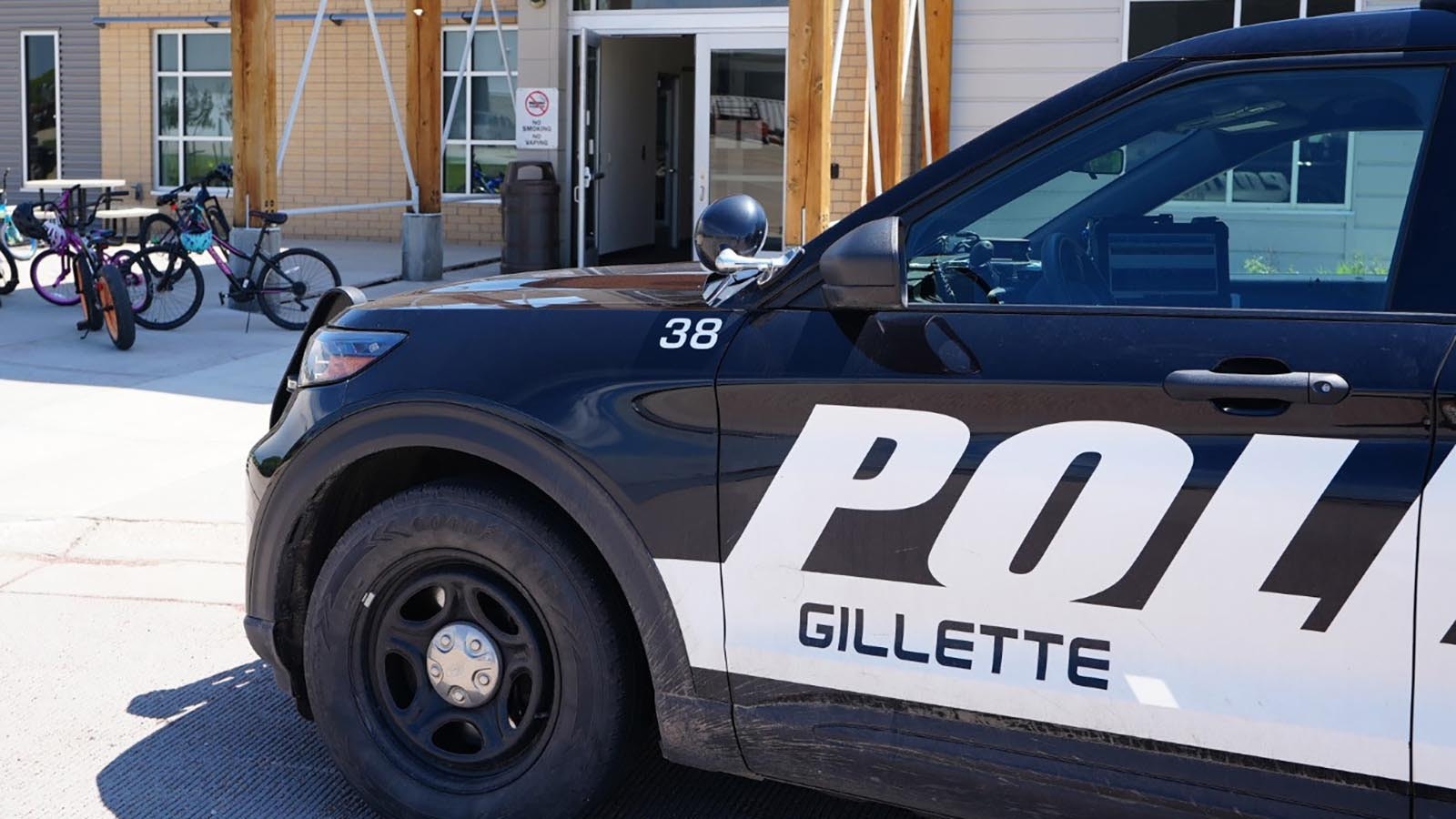Nearly half of the inmates in the Laramie County Detention Center have mental health conditions, and about 11% are “extremely” mentally ill.
Among those inmates who pose such a danger to themselves or others that they need to be isolated within surveillance-equipped cells, said Laramie County Chief Deputy and Detention Administrator Perry Rockvam.
After two years and $700,000, plus other related projects and hires, the jail is opening the first special management unit in Wyoming. It’s a jail pod for inmates whose acute mental health issues require tight monitoring and extra care, but which is designed with good-behavior incentives as part of its functional design.
Rockvam spoke with Cowboy State Daily on Thursday, alongside Kozak and mental health coordinator Donelle Hiltner.
Right now, the isolated cells for potentially dangerous mental health condition sufferers are artificially-lit booking rooms apart from the general population.
It’s not ideal for the booking staffers trying to process new inmates using the 12 booking cells available, nor for mentally ill inmates whose conditions can worsen amid prolonged isolation, Kozak said.
“It’s a struggle every day,” added Rockvam.
Into The Light
For example, said Rockvam, many of the inmates will be able to see a progression of different social recreation areas from their cells. The outermost recreation area is an outdoor patio hedged with scenic murals.
On the men’s side, the mural, by Cheyenne artist Jordan Dean, resembles a rooftop view of Cheyenne, including the Wyoming Capitol’s glistening dome.
On the women’s side, Dean’s mural depicts scenes from Vedauwoo.
The outdoor area is not viewable from all 26 cells (that figure’s a combination of 16 on the men’s side and 10 on the women’s side), but “they’ll know it’s there,” said Rockvam, “because it brings in a lot of daylight.”
The daylight is key, he added.
Inmates now requiring observation get no daylight in the booking cells where they’re confined apart from the general population, Rockvam said. Those confinements could last as long as six months, or more than a year.
He said he hopes the presence of daylight, and the desire to bask in it fully, will hasten those inmates’ recovery to a functional, sociable level.
Rockvam said he expects the special pod to be full basically all the time. Jail staffers have already identified whom to transition into it in the coming days, with the planned opening set for Friday.
Other distinctive features of the pod include secured, sand-filled furniture that can’t be used as a weapon or a self-harm tool, said Kozak.
The pod is a far cry from the old movie stereotype of garish padded rooms, Hiltner added.
But Why This
Though the jail officials did not have pre-COVID figures for the mental health state of inmates in the facility, they said anecdotally that the percentage of condition sufferers, about 48%, is high compared to before the pandemic.
“After COVID there was a huge change in the amount of people who have come — surfaced to the top — in dealing with mental illness,” said Rockvam
Hiltner agreed, noting that she worked in a large facility outside Philadelphia before joining the Laramie County Sheriff’s Office four years ago, and she identified the same fulcrum at her prior workplace.
“Just (in) my observations as a clinician, I think (the pandemic and lockdowns) created a lot of isolation, and had some damaging effects,” said Hiltner.
Jail staffers can learn from that.
“When you look at research on people in jail, and the use of isolation, it’s really damaging to their mental health,” she said. “COVID as just sort of a large-scale segregation experiment in Wyoming … (which) just brought up a whole bunch of underlying issues for people.”
It’s Gotta Be More Than Just A Jail
Jail is not just jail anymore, officials said.
“Because of the amount of mentally-ill inmates, we feel we have to change how we manage the jail,” Rockvam said. Mental health outbursts bring “a stress on staff. Those inmates are a threat to themselves, a threat to staff, and there’s no place else for them to go.”
The hospital, for example, is not an appropriate place for a jailable criminal defendant having a mental event, Rockvam added.
The result is that the sheriff’s office has been rewriting jail policies, committing to remodels like this one and hiring in-house and contract-based mental health professionals.
“We’re basically running a large psychiatric hospital, in some respects,” said Rockvam.
It’s easier said than done: jail staffers have to balance defendants’ rights alongside court procedures, acute mental illnesses and their own functional limitations.
“Because jails are dealing with things they’ve never had to deal with before,” Rockvam said.
Hiltner gave an example.
To medicate mentally troubled inmates forcibly, jail staffers have to submit to a mental health confinement law most professionals reference by its section of law, Title 25. Through that, a judge can order someone to be medicated forcibly.
A discussion with the inmate/patient follows, said Hiltner.
“We — myself for one of the counselors — will go and speak to the patient and say, ‘Here’s the deal; we have this order to give you the medication. You can take a pill form of it, but if you refuse the pill form we’re going to have to administer an injectable,’” Hiltner said.
Usually, inmates opt for the pill. If they don’t, deputies may have to hold them down while a nurse administers an injection, said Hiltner.
Pilot Program
The Laramie County Detention Center has been running a pilot program funded by the Wyoming Department of Health (WDH) and designed to ease symptoms for inmates subject to considerable wait times to enter the Wyoming State Hospital.
Under the health department’s umbrella, Wyoming State Hospital is a state-run facility in Evanston where professionals evaluate criminal defendants for whom judges have ordered mental health evaluations. (Most of those defendants receive evaluations on an outpatient basis, however.)
Other criminal defendants go to the state hospital for a chance to recover.
Most of the inmates there are not criminal defendants, but people who are court-ordered to the facility anyway due to their mental fallout that presents potential dangers to themselves or others, WDH leaders told a legislative committee in May.
The Wyoming Department of Health furnishes a contract by which a Wyoming Behavioral Institute (WBI) psychiatrist serves Laramie County inmates and performs telehealth visits with them, Hiltner said.
The jail also has one psychiatric nurse practitioner and two mental health nurses in-house, is expecting soon to fill a fourth mental health position and is seeking candidates for a fifth, said Rockvam.
This helps take some of the pressure off people waiting for one of the Wyoming State Hospital’s beds by getting medication and treatment to them in the meantime, said Hiltner.
Four Months’ Wait
The oft-lengthy waiting lists to get into the state hospital don’t hinge necessarily on physical bed count (which is 104, including about 25 operating for criminal defendants), Wyoming Department of Health Director Stefan Johansson told lawmakers at a May 19 meeting of the Judiciary Committee.
Staffing shortages equate to bed shortages when there aren’t enough professionals to tend and evaluate the full number of patients the hospital can house. And more than 20 beds that could serve criminal defendants sat empty in May because of staffing shortages, said Johansson.
The average wait time for a defendant court-ordered to receive inpatient treatment at the state hospital is about 120 days, Johansson said, noting that the figure fluctuates.
The hospital has also seen an increase in criminal defendants receiving mental health commitments over the past decade.
“No judgement there, we just have been seeing higher volumes. More orders competing for a static number of beds,” said the director, later adding, “There’s a lot of overlap of folks that might end up in the legal and judicial system … and do often end up in the state hospital or the correctional system.”
The Sheriff With The Sign
Kozak and Rockvam spoke of other measures to alleviate the jail’s sizeable mental health burdens.
They coordinate with community providers to get inmates onto a mental health or substance abuse treatment plan ahead of their release. They’ve decreased their addiction testing wait time down from about four months to two days by providing that service in-house, said Rockvam.
Kozak said Laramie County’s is the only jail in Wyoming that provides that service — which is an integral part of criminal cases — in-house.
“(What we do is) encompassing a lot of different disciplines to accomplish a single goal of basically taking care of people, and trying to reduce crime so we don’t have people coming back to jail over and over and over again,” Rockvam added.
Kozak contrasted his jail’s methods with his broader reputation of using tough-guy-style humor to attract staffers and discourage crime.
The sheriff made headlines in January for posting a “vacancy” sign at the jail, to let the public know deputies will book inmates and the jail hasn’t been on a COVID-style release program for years.
“I know I’m the sheriff with the vacancy sign,” said Kozak. “So I’m pretty conservative and our deputies go out and we’re looking to arrest people and enforce the law. But once they get to jail, you can see that kinder, gentler side (by which we) try to work with people to give them the resources they need.”
Clair McFarland can be reached at clair@cowboystatedaily.com.














